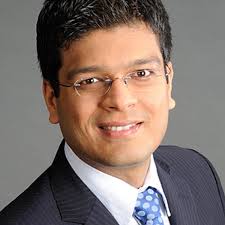
PSU Banks are in a no-fly zone: Rahul Saraogi in 2011
In June 2011, when all and sundry were gung-ho about PSU Bank stocks, Rahul Sarogi had issued the grim warning that the “Outlook For Indian State Run Banks Beginning To Sour”.
He warned that “the speed with which loans are going bad in an economy that continues to grow nominally at 13-14% per year are alarming”.
“When banks that are leveraged 10 to 1 (all banks in India) lose even 10% of their asset book, their entire equity gets wiped out. In such a scenario, stock prices trading at or below book value offer little comfort,” he added in a chilling tone.
As is now evident, Rahul Sarogi’s warning was prophetic because PSU Bank stocks have sunk like a stone in the wake of the colossal NPA losses reported by PNB, SBI etc.
Top 5 worst performing #PSU Bank stocks in Feb
PNB down 43%
BOI down 26%
Union Bank down 24%
Allahabad Bank down 22%
Syndicate Bank down 18%#banks #equity pic.twitter.com/QMkonRySug— BTVI Live (@BTVI) February 28, 2018
PSU banks – Valuation snapshot on various metrics. Via Motilal Oswal. #MarketsNow #PNBFraudCase pic.twitter.com/I2kztBhRrr
— Prashant Nair (@_prashantnair) March 1, 2018
PSU Banks now present an opportunity
Today, the pendulum has swung to the other extreme.
In his latest piece, Rahul Saraogi has argued that PSU Banks have reached a “multi-decade bottom” and present a unique opportunity to pocket multibagger gains.
“In my 20 years of investing I have learned that calling the bottom of anything is fraught with danger. I am still going to go ahead and call a multi-decade bottom in India’s government owned banks,” he has said.
PSU Banks can be 10-baggers like OMC Stocks
Old-timers will recollect that in August 2013, Oil Marketing companies like HPCL, BPCL, IOC, etc faced the worst case scenario crisis.
The dollar rupee exchange rate had peaked at 69.00 while the crude oil prices had peaked to USD 108 per barrel.
What made the situation intolerable was the fact that the Government refused to let the OMCs raise retail fuel prices which meant that the OMCs had to suffer colossal losses on the difference between the crude oil prices and the refined oil prices.
Naturally, the stock prices of OMCs plunged like a stone.
Hindustan Petroleum Corporation (HPCL), the flagship of the OMCs, touched a bottom of Rs. 37 per share in August 2013 (adjusted for bonus).
“It seemed then like the ventilator had been switched off on a critically ill ICU patient,” Saroagi has observed.
In hindsight, that was the golden opportunity to buy OMC stocks.
Since then, HPCL has surged to Rs. 380 giving magnificent 10-bagger gains to the few brave hearts who stayed invested in the stock.
It is worth recalling that Porinju Veliyath and Shyam Sekhar had both recommended that we buy OMC stocks at that time.
@porinju The MCAP in 2004 when NDA ruled was much higher than this. The price doesn't reflect a decade of growth in retail. Gr8 retail play.
— Shyam Sekhar (@shyamsek) April 30, 2014
Since the recommendation, the market cap of HPCL has soared from Rs. 10,000 crore to Rs. 60,000 crore.
The notable aspect is that HPCL is still a good buy according to Porinju (see Top Picks Of Porinju Veliyath After Budget 2018).
Multibagger gains come to the courageous
“The opportunity to make ten times one’s money in 4 ½ years in a plain vanilla business like oil refining and marketing is possible only when one has the courage to invest during times of extreme stress,” Rahul Saraogi has advised.
PSU Banks are even “more depressed” than OMCs were in August 2013, he has opined, clearly implying that PSU Banks have more potential to shower multibagger gains if we can muster the courage to buy them now.
Private banks are as bad, if not worse, than PSU Banks
The popular perception amongst investors is that private banks have pristine credentials and can do no wrong.
This is why investors are unhesitatingly willing to pay exorbitant valuations for private banks of as much as 4x their book value.
However, Rahul Sarogi has shattered this myth and argued that the narrative about private banks being better than PSU Banks is “completely false”.
Books of private banks are “ever-greened” and “completely rotten”
“The books of private sector banks like Yes Bank and IndusInd bank are completely rotten,” Saraogi has alleged in a shocking manner.
“If a forensic audit of their books was forced by the regulator, one would discover that both banks rank equal to or worse than IDBI Bank and Central Bank in their loan books and processes,” he has added.
“Private sector banks like Axis Bank and ICICI Bank are no different from government owned banks except for their larger retail franchises. Their books are equivalent to that of a State Bank of India or a Bank of Baroda and they do not deserve a valuation premium over them”.
Even old private sector banks like Karur Vysya Bank, Karnataka Bank, South Indian Bank and City Union Bank have not been spared.
They all carry rotten books with loans that have been “discretionarily evergreened” and are no different from government owned banks in their performance, Saraogi has stated in a grim tone.
PSU Banks will now be “hyper-vigilant” and likelihood of NPA fiascos is “almost zero”
Rahul Sarogi has come out will all guns blazing in favour of PSU Banks.
He has stated that things are “changing quickly and dramatically” for the PSU Banks.
“One can state with absolute certainty that government owned banks are now completely autonomous,” he has surprisingly stated.
He has also opined that the severity and size of the
frauds has made everyone “hyper-vigilant” and that the likelihood of similar fiascos repeating is “almost zero”.
.@rajeevkumr, Banking Secy: PSU Banks Told To Detect Frauds On Time & Refer Cases To CBI.
PSU Banks Told To Examine All Bad Loans Above Rs 50 Cr For Possible Fraud.
Asked Banks To Examine Bad Loan Frauds As Wilful Default; Involve ED/DRI For PMLA/FEMA/EXIM Violations If Any pic.twitter.com/RSlaxh3Nn3
— BTVI Live (@BTVI) February 27, 2018
Government asks PSU banks to set up framework for timely detection, reporting, and investigation of bank frauds.https://t.co/tDQLK77DMP pic.twitter.com/rHzafiCM4M
— BloombergQuint (@BloombergQuint) February 27, 2018
Privatisation of PSU Banks is on the anvil
The present crisis is a blessing in disguise because it gives the Government the much needed impetus to privatize PSU Banks.
“The mood of the nation and the administration is to undo
the Bank Nationalization Act of 1969 by which the government will be able to bring its ownership in these banks below 51%,” Rahul Sarogi has opined.
He has also observed that the banking sector in India has been “completely empowered” with the passing and implementation of the Insolvency & Bankruptcy Code (IBC).
Rahul Sarogi has also praised the employees of PSU Banks for being “extremely competent” and “understand the business of banking”.
“They have not been empowered, motivated or threatened
and that has made them underperform,” he says.
The time is now! Bank nationalization has to be undone in India. Time to throw out the socialist legacy.
— Rahul Saraogi (@RahulSaraogi) February 20, 2018
How many more bank frauds will have to happen before the mistake of bank nationalisation is fully understood? Time to privatise all public sector banks? Now that would be a real economic reform.
— Tavleen Singh (@tavleen_singh) February 15, 2018
#NarendraMod let us not blame Narendra Modi for bank frauds. PSU banks are a huge mess and this has been so last 15 years. We need tough Regulators and knowledgeable Netas to set right the mess. Matter urgent
— P.N.VIJAY (@pnvijay) February 28, 2018
There’s just too many public sector banks. They handle a lot of money but are run by incompetent and underpaid people. Anyone in power can and will exploit them. Until you fix these banks nothing will change. So stop blaming /supporting a party here for f sake. All are complicit.
— Chetan Bhagat (@chetan_bhagat) February 20, 2018
.@rasheshshah, @ficci_india President: Privatisation Of PSU Banks Only a Short-Term Plan, Need To Think Long-Term pic.twitter.com/BjhGHI7LVj
— BTVI Live (@BTVI) February 23, 2018
PNB scam: How did such a massive scam happen when swarms of external auditors are scrutinising banks? Time auditors are held accountable @businessline @srinivasanravi https://t.co/LnYziUTTqK
— Radhika Merwin (@RadhikaMerwin) February 22, 2018
PSU Banks have “bullet proof liability” and “low-cost deposit franchises”
Rahul Saroagi has explained that no matter how much loathing investors have for PSU Banks, the fact is that they cannot be wished away given that they have a stranglehold over 70% of the Country’s banking system.
If India has to grow at 8%+ rates, credit in the economy will have to expand and government owned banks will have to grow, he adds.
PSU Banks possess “bullet proof liability and low-cost deposit franchises that have remained unshaken through this downturn due to the perceived sovereign guarantee behind them”, he opines.
He has also noted that PSU banks possess a “deep reach into the economy with their strong branch network and historical relationships with companies and the general public”.
This gives them a phenomenal capacity to grow the asset and
lending side of their business profitably, he says.
Phenomenal asymmetries and opportunities to generate superior returns
“There are more than a few government owned banks that have solid businesses and are trading at multi-decade lows. These select banks provide phenomenal asymmetries and opportunities to generate superior returns over the next five years and are worthy of consideration by investors,” Sarogi has said.
He has also opined that investors who decide against investing in PSU Banks by making book value calculations are “grossly understating the case for these banks”.
Shyam Sekhar is also aggressively bullish about PSU Banks …
It is well known that Shyam Sekhar is also a proponent of the theory that PSU Banks are good investment candidates owing to their trough valuations.
He propounded the theory that because the survival of the PSU Banks is at stake, they have no option but to become efficient.
“Once you know that your very survival is threatened, I think that the culture will change much faster. So, to say that the culture will completely die is a bit of an extreme thinking in my opinion and you can see id some of the corporate sector banks are definitely showing serious intent to change. For example, banks like SBI, Bank of Baroda are moving towards products and giving more investment options to their clients. A lot is happening and the market in all its noises is not paying heed to that”.
He also opined that PSU Banks would become as efficient as the insurance companies and mutual funds.
“If you remember how the insurance companies work or how the mutual funds work before privatisation, we are in that kind of a moment as far as public sector banks are concerned”.
After debating me on PSBs, a leading banking FM reportedly yelled "what the f£#k does he know?"
Today, his virgin knowledge just got taken.
— Shyam Sekhar (@shyamsek) October 25, 2017
You seem highly convinced; you should short SBI on a five year basis. Will be great to see what happens.
— Shyam Sekhar (@shyamsek) October 25, 2017
He also did not react favorably to a comment from Shekhar Gupta that there has been large scale destruction of wealth by Sarkari Banks.
All 21 PSU banks together are worth less than just one in private sector, HDFC Bank by a good Rs 50,000 cr. That’s the scale of taxpayer wealth destruction by sarkari banks. PNB is just the latest. My #NationalInterest https://t.co/JqpQRedPuS
— Shekhar Gupta (@ShekharGupta) February 18, 2018
The value of @ThePrintIndia must already be negative @ShekharGupta. With more economics from you, it will be deeply unfathomable. Spare us. https://t.co/i3xlqDTwI8
— Shyam Sekhar (@shyamsek) February 18, 2018
… though Porinju’s stance is baffling
Porinju has been ambivalent about his support for PSU Bank stocks.
He was initially gung-ho about PSU Banks.
Some under-owned PSU Banks could surprise you with a responsible Government in New Delhi!
— Porinju Veliyath (@porinju) February 2, 2017
He had an “I-told-you-so” look when the stocks surged after the recapitalization decision.
Expected the move sometime back! https://t.co/A98TVNfbfU
— Porinju Veliyath (@porinju) October 25, 2017
However, thereafter he turned contemptuous about them.
Never bought any PSU Banks in PMS for the 15 years, since inception – I knew the level of corruption going on. Govt should reform RBI and get rid of PSU banks!
— Porinju Veliyath (@porinju) February 27, 2018
He also stated that he has “better things to do than buy PSU Banks”.
“I really would not be doing anything in PSU banks because I have better things to do in life. So I would like to keep out because there is no clarity. Even though I might have taken some stand in the past, on short-term basis on that valuations but from an investment perspective the investors have much better things to do,” he said @ 5.15.
Shankar Sharma is also not impressed with PSU Banks
Shankar Sharma is also known to be allergic to PSU Bank stocks.
As far as in July 2013, Shankar had proclaimed that “Banking is the worst business in the world”.
“Banking will be a terrible sector to own in coming months. We have a very negative view on banking, because we don’t expect banks to deliver 15-20% earnings and lending growth, going forward, at a time when the economy is growing at 5%. If any bank is growing at that pace, then it is taking excessive risks,” he said (see Told You Losers To Sell Bank Stocks: Shankar Sharma).
In fact, in a prophetic tone, Shankar had sent the grim warning in the beginning of 2017 that investors should avoid banking stocks because NPA troubles were likely in 2017.
I consider two sectors to have the worst accounting and business practices: Banking and Jewelry. The current scam is a marriage made in heaven
— Shankar Sharma (@1shankarsharma) February 22, 2018
However, he did turn somewhat sympathetic towards PSU Banks after the relentless bashing that they received from the intelligentsia. He explained that even global private banks are guilty of similar frauds and so it is not fair to single out PSU Banks for critisism.
I think it's completely silly and ill-informed on part of the intelligentsia to start bashing PSU Banks in general,for the NM scandal: such things have happened in global banks routinely, over decades. Leeson, London Whale, Sub Prime, Etc etc. Banking and Fraud go hand in hand
— Shankar Sharma (@1shankarsharma) February 17, 2018
Conclusion
It is obvious that in view of the difference of opinion amongst experts, we will have to tread with utmost caution and play the balancing game. Prima facie, if PSU Banks stocks have indeed reach a “multi-decade bottom” as opined by Rahul Saraogi, it means the risk of further downside is limited. Even a slight bit of positive news can send them surging like rockets. In these circumstances, it is advisable that we buy in small bits and pieces whenever there is a dip. This way we can profit from the situation whilst limiting the risk to our meager capital!

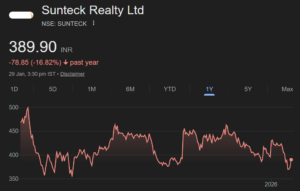
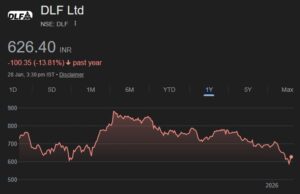

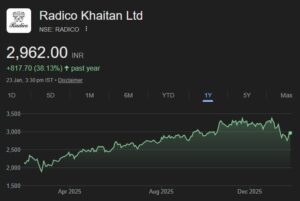
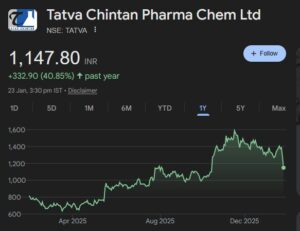
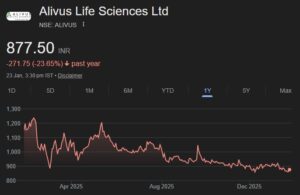
There are equally strong and divided opinion on PSU banks future in India.
The only way to redeem the rot is to privatise them which is again easy to say than to implement.
What to think of any PSU bank , when HDFC Bank is there.
Or, Kotak Mahindra Bank.
Only Retail focused banks will perform in the long term. PSU or pvt is not important. Simple reason is time and again only big fish are capable of defrauding the system and running away with the loot. Aam aadmi is too weak, you dont pay EMI for a few months and bank will come and seize your property in no time.
interesting discussion
Nothing now for multibagger keep away from the market for some time. Thinking of Multibagger is far far away, now think how to not become a beggar having invested in stocks.
Agreed. Instead of vying for multibagger, pray to not become a beggar in these highly volatile and uncertain riskier environment due to multiple factors including abrupt and unprecedented hike in bond yields across the globe and elections in India which is now round the corner.